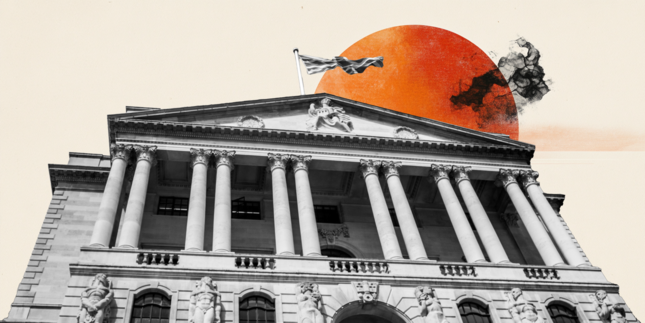“I can’t tell you how many times I’ve heard traders say they’ll hold on to their position because ‘it’ll all average out.’ It rarely does.”
For many traders, confidence feels like the key to success. But confidence without clarity? That’s where the real danger lies. Trading isn’t a contest of ego—it’s an exercise in adaptation. The most successful traders aren’t the loudest in the room, they’re the most flexible.
The seduction of certainty
There’s a quiet trap that lures even experienced traders: the need to be right. It shows up in subtle ways—overtrading, ignoring new information, or clinging to a thesis long after the market proves otherwise. According to Carol Harmer, one of the founding educators at the International Trading Institute (ITI) and an institutional trader with 42+ years of experience, “You can’t trade well if you’re trying to prove something. The market doesn’t care about your ego.”
This psychological pattern often leads to what institutional traders call “emotional anchoring”—tying your identity to a position. And once that happens, objectivity fades. The goal shifts from managing risk to defending pride.
Confidence vs ego in execution
Let’s be clear: confidence is essential. But it must be earned—not assumed. It comes from preparation, structure, and adaptability, not from forcing a trade to work. As ITI emphasizes in its Master´s in Trading program, ego-free confidence is rooted in process. You know your plan. You know when to step back. And you’re not afraid to be wrong.
That discipline often reveals itself not in big wins, but in clean exits. Letting go of a trade quickly when it invalidates is a skill many retail traders overlook. But in professional environments, that’s standard practice.
Adaptability is the real edge
Markets change. Narratives shift. Volume dries up. Liquidity hides. One of the biggest mistakes traders make is applying yesterday’s framework to today’s market. Institutional players adapt fast—not because they know the future, but because they’re trained to let go of outdated assumptions.
ITI trains its students to do just that. Rather than preaching rigid systems, it builds adaptive decision-makers—traders who can pivot their approach based on market context, risk dynamics, and execution flow. Carol’s mentorship model reinforces this adaptability by asking one critical question: “What is the market telling you now—and are you listening?”
A simpler, stronger path forward
If you want to level up your trading, start by subtracting. Strip away the clutter. Reduce the noise. Let go of the need to predict and focus on responding.
Ask yourself:
-
Do I need to be right, or do I want to be profitable?
-
Is my confidence earned through preparation—or inflated by hope?
-
Can I let go of a trade, or am I holding it because I don’t want to “lose”?
Trading without ego doesn’t mean trading without strength. It means your strength is rooted in reality, not illusion.
And the most powerful traders? They don’t shout about their success. They move quietly—with confidence earned through humility, structure, and relentless adaptability.
This article is for educational purposes only and does not constitute financial, investment, or trading advice. All trading involves significant risk, including the potential loss of your entire investment. Past performance is not indicative of future results. You alone are responsible for evaluating all risks associated with the use of any information provided here and for your own trading decisions. Neither the author nor the International Trading Institute is liable for any losses or damages arising from the application of this material.
Editors’ Picks

EUR/USD stays below 1.1850 after dismal German sentiment data
EUR/USD stays in negative territory below 1.1850 in the second half of the day on Tuesday. Renewed US Dollar strength, combined with a softer risk tone keep the pair undermined alongside downbeat German ZEW sentiment readings for February.

GBP/USD falls toward 1.3550, pressured by weak UK jobs report
GBP/USD remains under bearish pressure and extends its decline below 1.3600 on Tuesday. The United Kingdom employment data suggested worsening labor market conditions, bolstering bets for a BoE interest rate cut next month and making it difficult for Pound Sterling to stay resilient against its peers.

Gold recovers modestly, stays deep in red below $4,950
Gold (XAU/USD) stages a rebound but remains deep in negative territory below $4,950 after touching its weakest level in over a week near $4,850 earlier in the day. Renewed US Dollar strength makes it difficult for XAU/USD to gather recovery momentum despite the risk-averse market atmosphere.

Canada CPI expected to show sticky inflation in January, still above BoC’s target
Economists see the headline CPI rising by 2.4% in a year to January, still above the BoC’s target and matching December’s increase. On a monthly basis, prices are expected to rise by 0.1%.

UK jobs market weakens, bolstering rate cut hopes
In the UK, the latest jobs report made for difficult reading. Nonetheless, this represents yet another reminder for the Bank of England that they need to act swiftly given the collapse in inflation expected over the coming months.
RECOMMENDED LESSONS
Making money in forex is easy if you know how the bankers trade!
I’m often mystified in my educational forex articles why so many traders struggle to make consistent money out of forex trading. The answer has more to do with what they don’t know than what they do know. After working in investment banks for 20 years many of which were as a Chief trader its second knowledge how to extract cash out of the market.
5 Forex News Events You Need To Know
In the fast moving world of currency markets where huge moves can seemingly come from nowhere, it is extremely important for new traders to learn about the various economic indicators and forex news events and releases that shape the markets. Indeed, quickly getting a handle on which data to look out for, what it means, and how to trade it can see new traders quickly become far more profitable and sets up the road to long term success.
Top 10 Chart Patterns Every Trader Should Know
Chart patterns are one of the most effective trading tools for a trader. They are pure price-action, and form on the basis of underlying buying and selling pressure. Chart patterns have a proven track-record, and traders use them to identify continuation or reversal signals, to open positions and identify price targets.
7 Ways to Avoid Forex Scams
The forex industry is recently seeing more and more scams. Here are 7 ways to avoid losing your money in such scams: Forex scams are becoming frequent. Michael Greenberg reports on luxurious expenses, including a submarine bought from the money taken from forex traders. Here’s another report of a forex fraud. So, how can we avoid falling in such forex scams?
What Are the 10 Fatal Mistakes Traders Make
Trading is exciting. Trading is hard. Trading is extremely hard. Some say that it takes more than 10,000 hours to master. Others believe that trading is the way to quick riches. They might be both wrong. What is important to know that no matter how experienced you are, mistakes will be part of the trading process.
The challenge: Timing the market and trader psychology
Successful trading often comes down to timing – entering and exiting trades at the right moments. Yet timing the market is notoriously difficult, largely because human psychology can derail even the best plans. Two powerful emotions in particular – fear and greed – tend to drive trading decisions off course.
